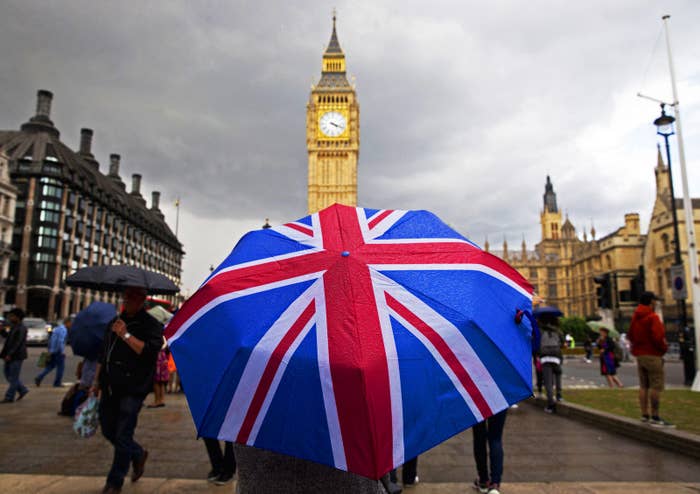
The government has published the bill setting out how the UK would begin the first stage of exiting the European Union today.
The EU withdrawal bill (previously known as the great repeal bill) sets out how EU laws would be replaced with British ones.
Almost instantly, Labour, the Liberal Democrats, and the Scottish and Welsh parliaments all said they would be unable to support the bill in its present form.
Here's a rundown of the key measures and sticking points:
The "European Communities Act 1972 is repealed", it says
This is the most straightforward part of the bill and would kick off taking the UK out of the EU. It would abruptly end the implementation of new EU legislation; however, it would not automatically cancel out EU law already in use in Britain.
Instead, these laws would be absorbed into domestic legislation. Then, if needed, they can be changed within a two-year window from exit day – in order to correct any "deficiencies". However, there's already confusion about what exactly this means in practise.
The charter of fundamental rights would "not be part of domestic law"
This clause would mean the UK is no longer bound by the charter of fundamental rights, which interprets EU human rights laws, and guarantees certain certain political, social, and economic rights for all EU citizens.
The government believes the charter won't be necessary once we exit because they plan to move the relevant EU laws wholesale across to the UK. Labour and the Liberal Democrats disagree, and have promised to vote down any bill that does not incorporate the rights enshrined by the EU charter into UK law.
There's confusion over the status of EU law after "exit day"
Clause 3 of the bill states: "Direct EU legislation, so far as operative immediately before exit day, forms part of domestic law on and after exit day."
However, as some lawyers have pointed out, it is unclear how the government is defining what would and wouldn't count as "direct" legislation when taking EU law into British law.
It is not that one disagrees with the provisions on retention of EU law post "exit day" (clauses 2 to 6 of BIll) but (genuinely) confusing.
There's some worry over the so-called Henry VIII powers
The discretionary powers awarded to the government's ministers, known as Henry VIII privileges, would allow the government to tweak the deluge of legislation required after we exit.
They would be in action for up to two years after exit day. Some MPs are already anxious about the "sweeping" powers such a change could give to ministers – and have promised to vote down the bill.
No self-respecting parliamentarian could vote through a Bill that grants such sweeping, absolute power to the execu… https://t.co/AiRJlMwBmq
It doesn't address devolved powers for Scotland and Wales
When the UK exits the EU, all powers that previously rested with the EU will return to the British parliament, and Westminster will then have the prerogative to decide which powers are returned to the regional parliaments.
But the bill fails to set out which powers would be devolved and when this devolution may happen.
Additionally, neither the Welsh assembly nor the Scottish parliament would be able to amend any returned EU laws. Both chambers have said that they cannot support this bill and will vote against May's parliament when it is heard.
You can read the full EU withdrawal bill here, and the qualifying notes here.
